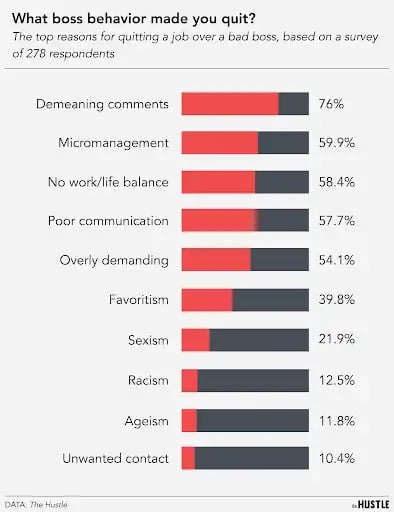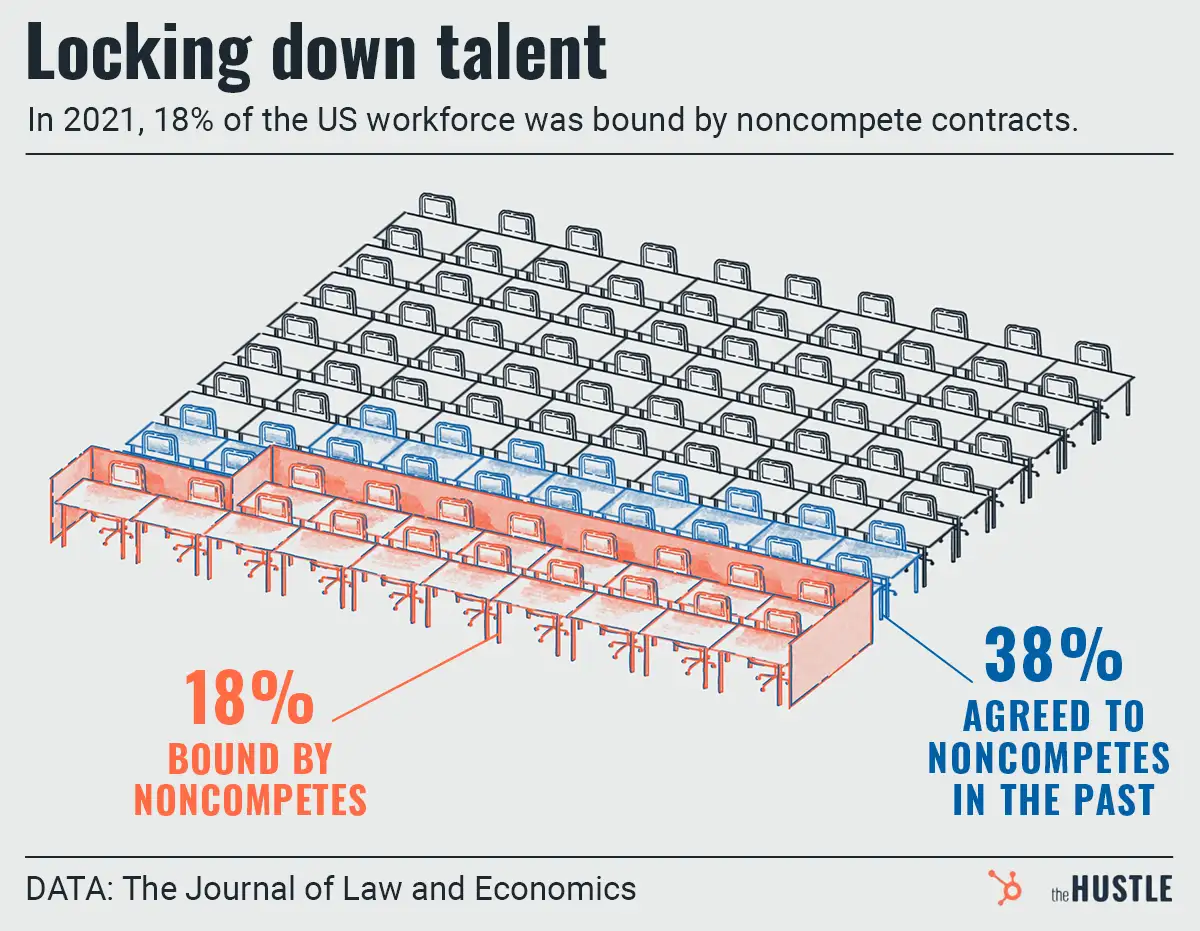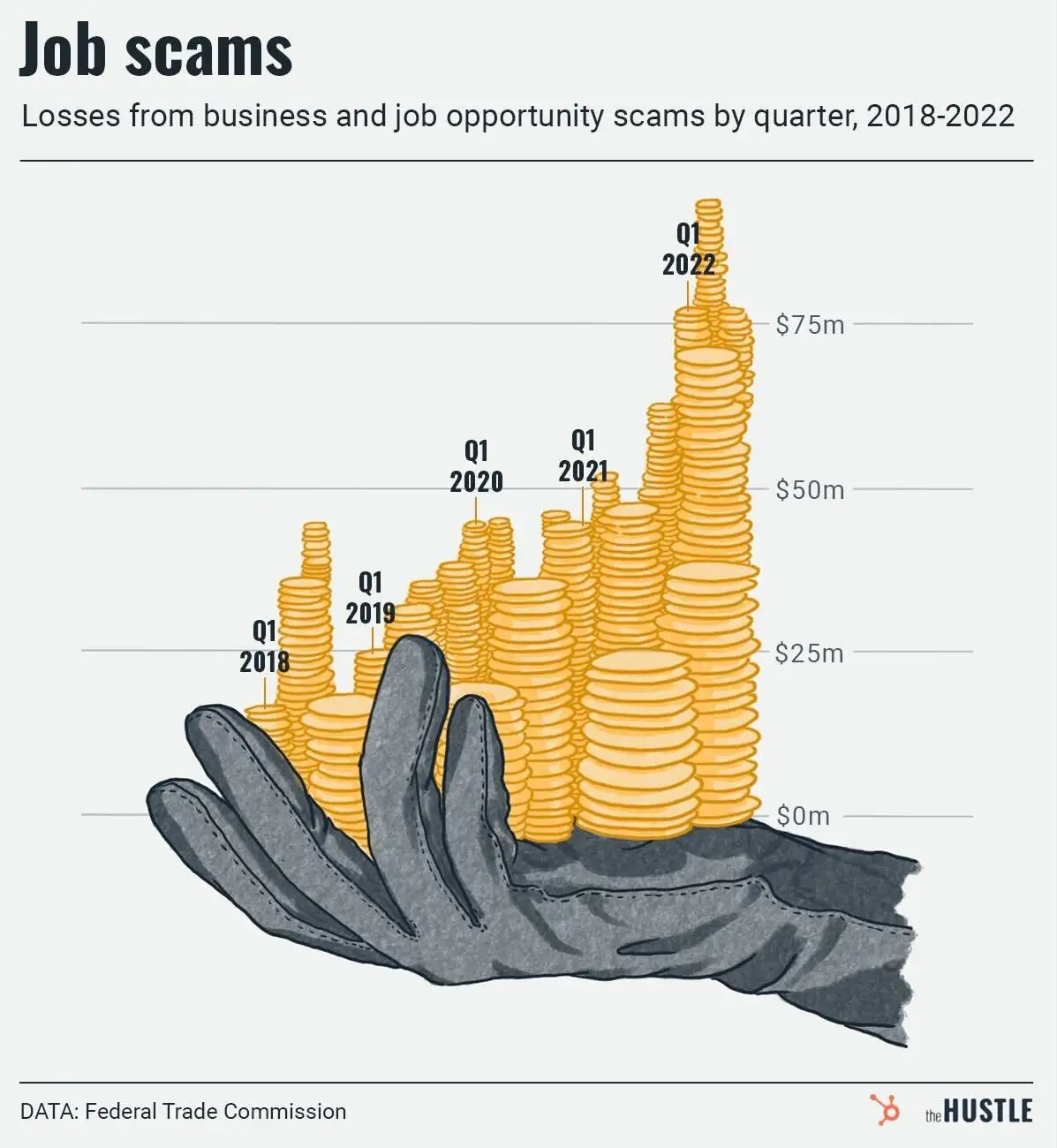We recently asked readers if they’d ever quit a job over a bad boss.

We received 278 responses. From our check-all-that-applied list, top reasons for leaving included:

Other common themes included bosses who ignored covid protocols, threw things, stole ideas, and demanded to know about bathroom breaks.
And then there were these stories (edited for clarity and brevity):
- The COO was my boss. He brought baby food jars and pacifiers into meetings “since we were all babies.”
- My boss would camp out by my car after work and ask me to come back in and talk.
- She critiqued everything I did from my writing to my presentation skills, to what I did in my personal life. She was so toxic that I went to bed crying every night.
- I was given a no-call, no-show for the day of my mother’s funeral.
- He reprimanded the team for leaving town for safety during Hurricane Irma in 2017.
- Our founder did not hesitate to yell at you or demean you in front of others. I remember getting berated once because one of my PowerPoint slides was pixelated. I felt like a pledge being hazed in a college fraternity.
Where do bad bosses come from?
Manuela Priesemuth, PhD, is an associate professor of management at Villanova University, and tells The Hustle that abusive behavior is often learned.
It trickles down from bosses to new hires who eventually practice what they endured — similar to the way children learn social behaviors from parents.
But while business cultures once prized “tough love” as a motivator, research shows it doesn’t work.
“It actually demotivates people,” Priesemuth says. “It destroys people. It creates anxiety, emotional exhaustion, and distress.”
A 2021 Australian study found toxic workplaces tripled the risk of depression. Priesemuth’s own research found it hinders teamwork.
It also hurt companies
An SHRM study found bad managers cost companies $223B in turnover between 2014 and 2019.
Other costs include lost productivity or destructive behaviors among employees — like taking fake sick days.
Companies also risk losing clients and customers if abuse is exposed.
What should you do if you have a bad boss?
If you hear a lot of “that’s just how it is around here,” Priesemuth says you may be in a toxic culture, which is hard to change.
But if you like the company, you could try HR. Priesemuth admits it’s not always easy and complaints can take a long time, but some key steps include:
- Documenting incidents, including emails and recorded virtual meetings
- Finding witnesses and allies — abusers often have multiple victims
- Looking for other executives or supervisors to talk to
The maybe-silver lining? Few bosses are actually psychopaths.
“We are only the recipient of that type of bad behavior, but a lot of times, something triggers [abusive bosses],” Priesemuth says. “So perhaps it’s worth it to understand the antecedent to that behavior if we want to create a better workplace.”More: Priesemuth shares more on how abusive bosses harm themselves here.










